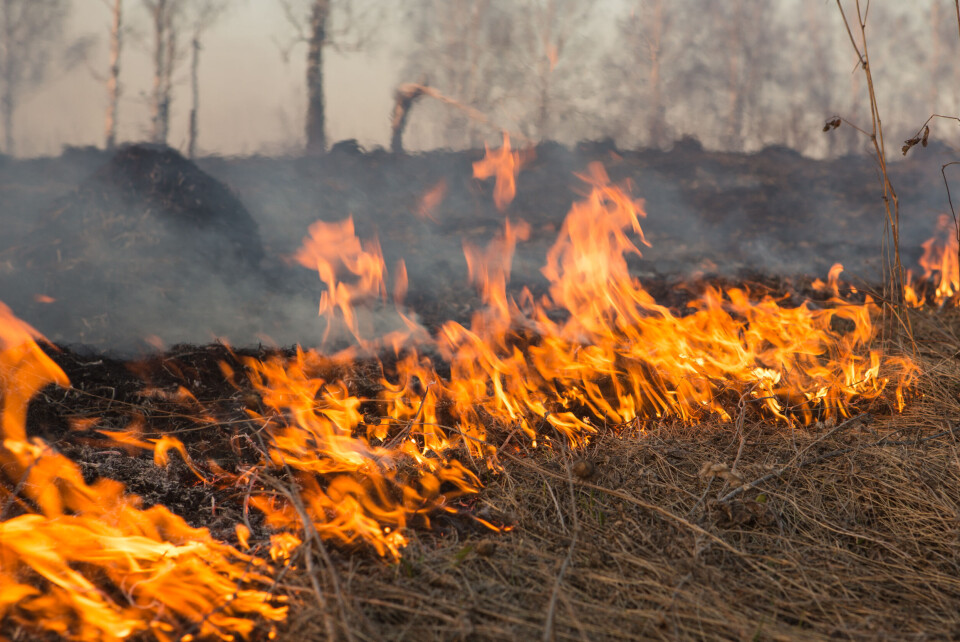-
Cyberattack on La Poste: are Christmas parcels impacted?
Parcel tracking services remain down for second day
-
Christmas gifts and food: How much are French households spending this year?
People are buying nine presents each on average
-
Confrontations with wild boar increase in France despite more hunts
Boar numbers are rising and the ‘unpredictable’ animals can cause serious injury
Wildfires in France: Why is it so difficult to get them under control?
The two fires which are currently raging across Gironde are being fed by high heat, wind and dry vegetation, and difficult terrain is complicating firefighters

Since July 12, two wildfires have been raging across La Teste-de-Buch and Landiras in the department of Gironde, and have now burnt nearly 13,000 hectares of land.
Read more: South-west France giant wildfires still spreading, situation worsens
Le restaurant La petite playa à #Cazaux et trois maisons ont été détruits par les flammes mais ce matin le village et le port sont sauvés #incendies pic.twitter.com/Byqd4Mx5Q9
— Gilles Gallinaro (@GallinaroG) July 15, 2022
The Landiras fire, which is burning around 40km to the south of Bordeaux, is now the worst that Gironde has known in the past 20 years. It is also the second worst fire to have occurred in France in the same period, after the blaze which killed two people in Var in 2021.
Read more: Cigarette butt likely cause of fatal south of France wildfire
Some 16,200 people have been evacuated since the fires began.
There are around 1,700 firefighters and several planes currently tackling the fires, but the weather conditions are making this very difficult.
Difficult terrain
Fire and rescue crews are struggling to control the fires partly because they are both raging over “difficult terrain”: in La Teste-de-Buch the land is sandy and in Landiras communication is being made difficult by the lack of phone signal.
Both fires are also being fed by dry pine trees, which catch fire by the trunk and fall easily to the ground, helping the flames to spread.
Lasting heatwaves
However, the situation is also being worsened by weather conditions which have been intensified by climate change.
Read more: Heatwave: Record temperatures expected in France today
Firstly, Gironde is located in one of the regions most severely affected by the heatwave currently lingering over France, with temperatures sitting in the late 30s and not expected to fall for the next few days.
This heat is feeding the fires and helping them to spread.
The whole country is now under some sort of heatwave alert, with eastern departments on a yellow warning, central areas on orange and most of Brittany and Nouvelle Aquitaine on red, the highest level.
Episode caniculaire devenant intense entre dimanche et mardi prochain. Les températures baisseront
— Météo-France (@meteofrance) July 14, 2022
progressivement par l’ouest à partir de mardi, mercredi.
⬇️Pour les 3 prochains jours ⬇️ pic.twitter.com/xSqNN8BGfr
Heatwaves will only become more common over the coming years, national forecaster Météo France has warned, as climate change takes hold.
The weather service states that residents should expect “hotter and hotter” summers, “where 35C will be the norm”.
“Beyond 35C, for example, vegetation struggles to photosynthesise, and forests no longer refresh us but can easily catch fire,” climatologist Davide Faranda told TF1.
Dry vegetation
This year has seen a marked absence of rain in many areas across France, meaning that most departments are now under some sort of drought alert and water restrictions.
Read more: Drought map update: 19 French departments have crisis-level alerts
According to its prefecture, Gironde has not seen a year with so little rainfall since 1959, and the dry weather is expected to continue at least for the next few days.
High winds
Gironde is also experiencing winds which enable the flames to spread, and for smoking vegetation to catch fire once again.
Wind also makes a blaze unpredictable, as it can easily change direction quickly, and therefore complicates the efforts of firefighters.
The wind is especially effective at feeding a fire when it is coming from inland, rather than the sea, which is the case currently.
Related articles
More people evacuated as south-west France wildfires rage on
France prepares for 10-day heatwave, wildfire risk increases
























